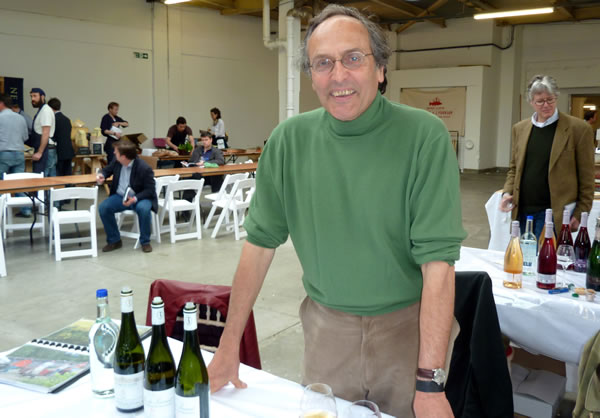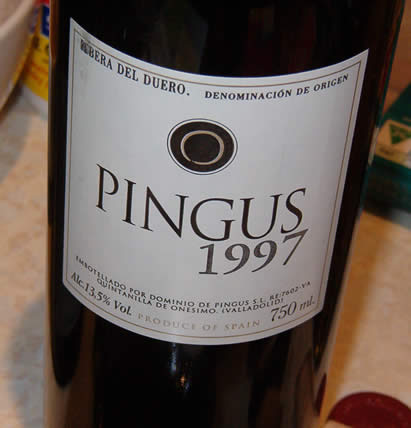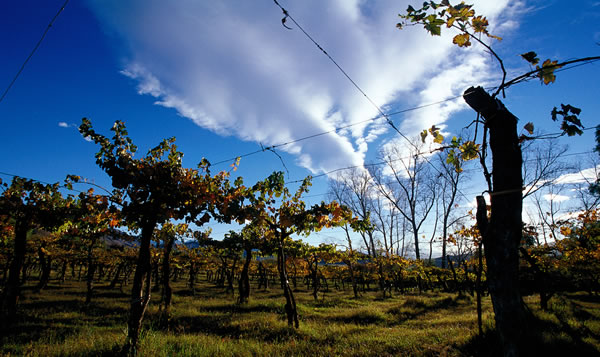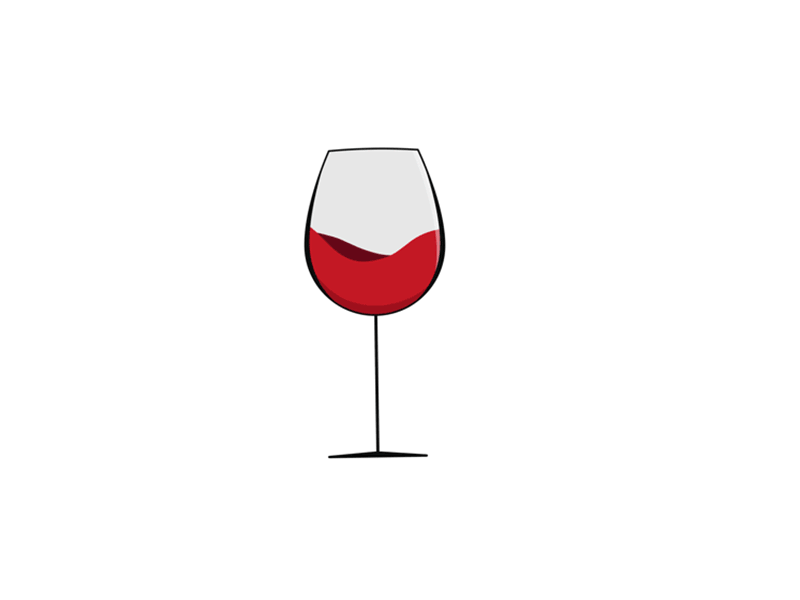生物動力葡萄酒
It is not a question here of going back to the debate that sets proponents and opponents of biodynamic winemaking against one another, because one way or another it tends to descend into a religious war where the wine is the great forgotten and the great loser. For those who want to know more about it I would not hesitate to recommend François Bouchet’s recent book “Cinquante ans de pratique”, edition Deux Versants, which sets out very clearly the principles, methods and practices of this type of viticulture. What was important to those who were at our recent tasting was going for the first time to as diversified a tasting as possible of wines produced by the biodynamic method so that we could understand why more and more talented winegrowers are converting their vineyards to it. It was beyond my expectations. At the last Vinexpo, Nicolas Joly had got together wines from fellow producers throughout the world that have attracted many professionals. I know however from experience that at this sort of presentation it isn’t possible to concentrate sufficiently on each small sample and taste the wines at an ideal temperature and on equal terms on each stand. I am therefore especially grateful to him for putting aside for me all the remaining bottles so that I could taste them in better conditions. Louis Lurton was kind enough to bring them to his Haut Nouchet estate in Martillac in the Graves where we took our time to understand better and judge the style of wines coming from very different vineyards and varieties and from equally diverse schools of winemaking.
我們在這裡不是要重複討論到底應該支持還是反對生物動力(Biodynamic)葡萄酒釀造方法,因為這樣只會引起不必要的爭辯,最後大家反而會忘記葡萄酒本身,成為最大的輸家。如果大家想了解多一些,我會毫不猶豫地推薦François Bouchet最近出版,Deux Versants的《Cinquante ans de pratique》,裡面詳細解說這種葡萄種植以至釀酒技術的理念、方法及慣常做法。在最近舉行的一次品酒會中,我希望參與的人士能夠品嚐到很多不同的生物動力葡萄酒,從而明白為什麼越來越多出色的葡萄農及釀酒師會採用這種方法。這的確是難以預計的。在剛過去的Vinexpo,Nicholas Joly匯集了全世界的生物動力葡萄酒釀造者展示他們的葡萄酒。以我的經驗來說,在這種品酒會中,在每個攤位是很難集中精神去品評,也不容易以最好的溫度、時間去品嚐每款酒的。幸好,他非常客氣的把所有剩下的葡萄酒都留下給我,因此我可以在比較好的情形下品嚐。Louis Lurton非常慷慨,把那些酒帶到位於Graves地區Martillac鎮中的Haut Nouchet酒莊中,讓我們可以慢慢品評這些酒,了解這些來自不同葡萄園、採用不同葡萄品種,及以不同的釀酒方法製成的葡萄酒,在風格上有什麼不同。
If one has to draw provisional conclusions from such an experience I would say first of all that it appeared blindingly obvious that the most successful wines had unique precision in their expression of terroir and climate, which alone justified the means used in producing them. The best whites stood out through their almost crystalline purity and aromatic delicacy, unimaginable until now in the appellations concerned. The best reds were undoubtedly proportionally less astonishing or out of keeping (whatever you like), perhaps because, in a young wine, the added dimension that the tannin gives is marked more by the quality of winemaking and the extraction of those tannins than by the quality of the grape juice. But there is no doubt that the best-made wines like Pingus, Lafleur Cailleau or the sumptuous Chambertin of Jean Louis Trapet, glorified their origin with an unforgettable brilliance and naturalness.
如果要在這裡作出一個臨時的結論,最明顯的會是,最好的酒是那些最能精準顯現、突出當地的terroir及氣候,而又以合理的方式釀造。最好的那些白葡萄酒靠著那晶瑩的純度,加上美味芳香,但難以想像她是來自這那一個產區的。最好的那些紅葡萄酒相對來說是比較少驚喜、也可以說是未合適,也許因為她們都還太年輕,那些本應由單寧帶來的深度,現在還只是在顯現出釀酒時及單寧提取時的功夫,而不是葡萄汁液的高質素。但無容置疑,最好的酒包括Pingus、Lafleur Cailleau或是Jean Louis Trapet的Chambertin,都充分表現出她們原產地的那份自然及光芒。
However, respect for the soil and the plant are not enough to produce quality wines: a spoilt grape, for whatever reason, will only ever give a bad product. Too abundant a harvest, even biodynamic, will produce a diluted wine. A crop harvested before complete maturity will result in a green and inelegant wine. Mediocre land, where vines should never have been planted, will not be improved because one gives it more life. Sometimes nature is very cruel and unfair when it comes to the efforts of man. Worse still, careless or amateurish winemaking will prevent all true expression of terroir and will ruin work done earlier to obtain a healthy and balanced grape. In the end, all disguise linked to technical trickery or to abuse, no matter what, and aiming to please through this excess itself, goes against the principles of this sort of agriculture and casts doubt on the sincerity of those who practise it. All these types of fault still exist and will help people understand why we weren’t happy with some of the wines shown. But in places it was heartening to see that the world of biodynamic winemaking doesn’t escape the mix of talent and effort which is the mark of humanity and its works!
然而,單單尊重土壤特性及葡萄藤並不能釀造出優質的葡萄酒。不論如何,變壞的葡萄只會釀出差劣的酒。產量收成太高,就算是生物動力方式,也只會釀出稀薄的葡萄酒。如果在未成熟前採收,葡萄酒會變得青澀而不優雅。平庸的土地不應種植葡萄,因為無論你多花精力,也不會得到改進。有時候,大自然對人所花的努在及功夫,是十分殘酷及不公平的。即管如此,不小心及不專業的釀酒也不會能夠把terroir完全表現出來,把努力種植所得,那些健康而平衝的葡萄成果白白浪費。最後,那些違背理念,不明所以而濫用及掩飾的技巧,只為在表面上推祟、但實際沒有徹底實踐,也不會成功。我們會見到不少這些情況,因此希望大家明白為什麼我們對一些酒並不欣賞。但我們同時感到恩惠,因為在生物動力葡萄酒的世界,是要天賦及努力的結合,那正正是人們的理念及奮鬥的成果!
A final word on certification. Many producers refuse to adhere to a certification body such as Ecocert and to its standards and controls. One can legitimately question their willingness to apply all the techniques linked to this type of agriculture but one can also understand their sincere desire not to display their winemaking convictions and their way of working on the label in order to allow their wine to speak for itself. Certainly in some markets certification is a considerable commercial asset because of the progress of current ecological thought among the consumers. However, even if it guarantees standards of production, it can’t guarantee quality, which depends uniquely on the winemaker’s knowledge. So it is he in whom we should place our confidence when we buy!
最後有關認證方面,很多酒莊都不希望加入某個認證體系,例如Ecocert,納入那些標準及監控。人們可能質疑為什麼他們那麼不願意,是不是沒有應用相關的種植技術呢;但我們也可以理解為他們不想把自己的理念、工作標籤化,他們希望以自己的葡萄酒去細說他們在釀造過程所下的工夫。當然對於部份市場來說,這些認證有一定的商業價值,尤其現在消費者對生態環保的重視。但是,就算這些認證可以確保種植、釀造時的標準,但也不能保證品質,因為那是關乎於釀酒師的知識水平。所以我們買酒的時候,應該以釀酒師作為我們信心保證!
(Published in September 2011 Issue of Cru Magazine)






0 Comments